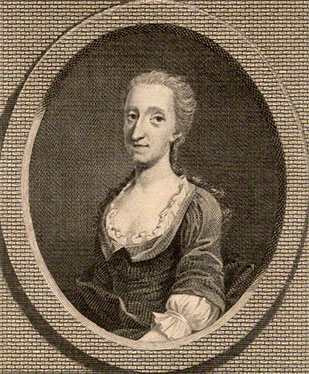By Emily Bamforth

Portrait of Catharine Trotter Cockburn, Author of Agnes de Castro. Source. Accessed 16/04/18.
Catharine Trotter Cockburn
Born: 16th August 1679
Died: 11th May 1749
Occupation: Novelist, Dramatist, Philosopher
Catharine Trotter was a talented playwright – we know this much from reading Agnes de Castro. But, let’s do her multidimensional female characters justice and get to know her as a fully fleshed-out individual too. Much more than a playwright, her endeavours as a novelist and a philosopher have ensured her legacy as an influential woman of the early modern period.
Early Life:
Catharine Trotter was born in London to her Scottish ma and da, Sarah Bellenden and David Trotter. From a very young age she was dedicated to her studies, and, despite financial hardship following the early loss of her father to the plague during his service in the navy in 1684, she was able to give herself what her lack of privilege attempted to deny her: an education. She taught herself to write and speak French, and also studied Latin grammar and logic. Now that’s girl power if I ever saw it.
Religion:
Trotter’s religion is a huge part of her work and her personal life. Raised Protestant, she converted to Roman Catholicism at an early age. However, after what we can only consider to be a lot of soul searching, she returned to Protestantism in 1707, aided by Bishop Gilbert Burnet, who wrote the preface to her religious philosophy A Discourse Concerning the Controversies, published the same year. She went on to write philosophy heavily influenced by religion, but we’ll come to that later…
Family:
Like I said, religion also influenced her personal life a lot, largely in the form of her marriage to Reverend Patrick Cockburn (1678–1749) in 1708. During her marriage she took a bit of a hiatus from writing to focus on her philosophy until 1726. Meanwhile, her husband and herself, along with their three children, Sarah, Catharine, and John, ran into a spot of financial and social difficulty. After George I ascended the throne, Reverend Cockburn refused to take the 1702 Oath of Abjuration, which basically means he denied the new King’s right to the throne… yikes. He was finally convinced by his father and the Lord Chancellor to take the oath in 1726, and was again welcomed into the community, being appointed to St Paul’s Chapel in Aberdeen.
Philosophy:
Trotter’s philosophical work explores a wide range of ideas, but she mainly focussed on moral issues. In essence, Trotter argued that morality wasn’t inherent to mankind, but rather that we can individually discover moral principles through our relationship with the reason bestowed upon us by God.
She came to have this ideology largely by reading John Locke’s work and basically thinking it was spot on, hence her first (anonymous) philosophical work, entitled A Defence of the ‘Essay of Human Understanding’, Written by Mr. Locke (1702), which was, as you can probably decipher from the title, dedicated to defending and upholding Lock’s work.
Literary works:
Of course, not only was Trotter a philosopher, she was also a literary author. During her career, she wrote 10 books and 5 plays as well as various other smaller publications.
In 1693 (at the age of just 14 years old!) her first work was published: an epistolary novella – in other words, a short story in the form of letters – called The Adventures of a Young Lady, which appeared in a collection formed by Samuel Briscoe entitled Letters of Love and Gallantry and Several other Subjects, All Written by Ladies (2 vols., 1693–4, vol. 1).
Her most successful works of fiction, however, were her plays, the first of which being Agnes de Castro. This piece was first performed two years after her first publication and was received pretty well by audiences and critics. Her most successful play, however, is generally agreed to be her second, entitled The Fatal Friendship, and staged in 1698.
Legacy:
Despite her success, Trotter’s reputation has faded into near obscurity. There have been various speculations on the cause of this, from her gender to her work ethic (that is to say her long period of inactivity following her marriage). Many have noted the way in which, due to her young age at the height of her career, her success was often overshadowed by her youth and beauty – the Renaissance equivalent of an interviewer asking an accomplished woman ‘who did your hair?’ as opposed to focusing on her craft and accomplishments.
Fortunately, Trotter’s work has been revived in recent years, largely thanks to feminist critics, such as Anne Kelley (cited below). Indeed, much of the research into Trotter’s life and work centers around gender studies. This is understandable considering her role as a female writer confined by her own gender who wrote multidimensional female characters who dominate the literary action of the sources they inhabit in a time when such characters, as well as her own female perspective, were intensely scarce.
Again: GIRL POWER.
Sources:
Patricia Sheridan, ‘Catharine Trotter Cockburn’, Stanford Encyclopedia of Philosophy (2016) https://plato.stanford.edu/entries/cockburn/
Anne Kelley, ‘Trotter [married name Cockburn], Catharine (1674?-1749), playwright and philosopher’, Oxford Dictionary of National Biography (2004)
